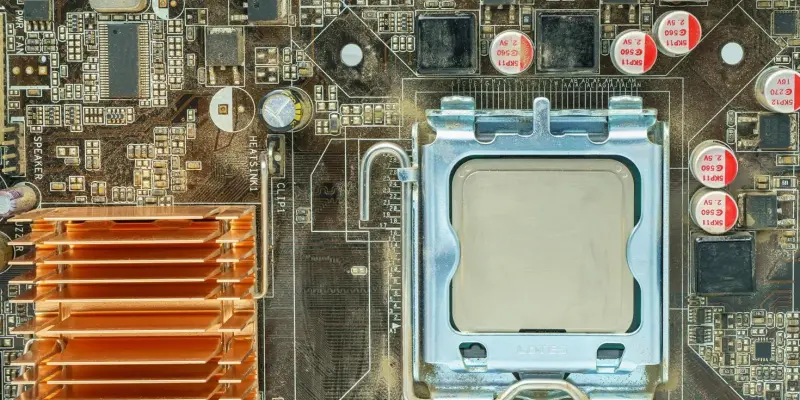The constant drive for faster and more powerful computer chips presents a formidable challenge in the tech industry, primarily in efficient cooling mechanisms. As chips increase in power and transistor density, traditional cooling methods fall short, often leading to overheating and diminished performance. In an ambitious bid to tackle this issue, startup Maxwell Labs has developed an innovative cooling approach using lasers. This technique, designed in collaboration with researchers from Sandia National Labs, aims to precisely target and cool the hottest spots on chips using ultrapure gallium arsenide (GaAs) semiconductor plates.
Revolutionary Cooling Technique
Maxwell Labs’ method involves placing GaAs plates on the most thermally stressed areas of processors. Lasers, tuned to a specific wavelength, strike these plates, triggering a cooling effect. This phenomenon was first observed in 2012 by scientists at Copenhagen University’s Niels Bohr Institute. The process works by directing the laser to microscopic patterns on the GaAs plates, which then convert the laser energy into cooling, effectively reducing high temperatures. This method promises not only to cool efficiently but also to potentially convert the removed heat into reusable electricity, thereby enhancing overall energy efficiency. With this dual benefit, the approach could significantly address current energy-saving needs while allowing processors to achieve unparalleled performance levels.
However, it is important to consider that producing ultrapure GaAs plates is both challenging and costly. Integrating these components with traditional silicon chips requires advanced 3D chip stacking and bonding techniques, which are still complex and expensive with current technology. Additionally, the laser cooling method has, to date, only been modeled and simulated, with physical testing yet to occur. The success of Maxwell Labs’ innovation hinges on overcoming these substantial technical and financial barriers.
Potential Breakthroughs and Challenges
Maxwell Labs aims to have a functioning prototype by the fall, which, if successful, could revolutionize chip cooling technology, leading to more efficient and powerful processors. This innovation underscores the potential for significant breakthroughs in materials science and energy efficiency within computing. The ability to manage thermal loads more effectively opens the door to new possibilities for processor design, potentially resulting in chips that operate at previously unattainable speeds and efficiencies.
Moreover, this innovation brings attention to the broader implications of thermal management in the electronics industry. As modern computing tasks become increasingly demanding, efficient heat dissipation becomes a crucial component in the overall design and functionality of electronic devices. The laser cooling technology developed by Maxwell Labs is positioned at the forefront of addressing these critical issues, potentially setting a new standard for thermal management solutions in high-performance computing.
Laboratory-based simulations and theoretical models provide a promising outlook, but the real test of this technology will come with physical implementation. The journey from prototype to commercial product is fraught with technical challenges that must be meticulously solved. The integration of this technology into mainstream chip manufacturing will require collaboration across multiple disciplines, including materials science, electrical engineering, and computational modeling to realize its full potential.
A Promising Future in Chip Cooling
The relentless pursuit of faster, more powerful computer chips poses a significant challenge in the tech industry, especially regarding efficient cooling mechanisms. As chips become more powerful and packed with higher transistor density, traditional cooling methods often fall short, leading to overheating and reduced performance. To address this critical issue, Maxwell Labs, a forward-thinking startup, has invented a novel cooling technology using lasers. Developed in collaboration with Sandia National Laboratories researchers, this innovative technique aims to precisely cool the hottest areas on chips. It utilizes ultrapure gallium arsenide (GaAs) semiconductor plates to achieve this precise cooling. This advancement holds the potential to revolutionize how computer chips are cooled, potentially leading to more reliable and efficient electronic devices. Maxwell Labs’ laser-based cooling method represents a significant leap forward in sustaining the performance and longevity of ever-evolving computer technologies.

